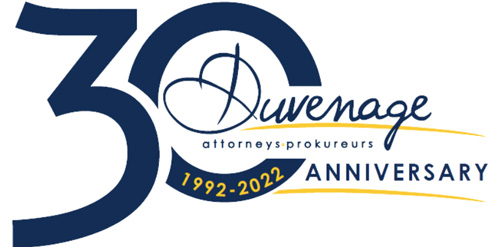EXPLAINING THE IMPLIED – TACIT CONTRACTUAL TERMS
When entering a contract, one of the most common misperceptions that the contracting parties have is that the contractual relationship is only governed by the terms as it appears in the particular contract. Although not entirely incorrect, it must be remembered that both written and oral contracts (bar certain exceptions) will be considered by the court to be valid. What most contracting parties tend to forget, is that implied or tacit terms of a contract have just as an important standing when the effect or interpretation of a contract is considered.
The leading authority on implied or tacit terms of a contract is the case of Alfred McAlpine and Son (Pty) Ltd v Transvaal Provincial Administration 1974 (3) SA 506 (A). In this matter the court referred to a tacit term as an unexpressed provision of the contract than can be inferred from the express terms of the contract and the surrounding circumstances thereof. The court further referred to the common law test for determining whether a tacit term exists, which test is referred to as the ‘officious bystander’ test. This test proceeds to pose the question as to whether an ‘officious bystander’ would have considered the tacit term to be applicable to the agreement. If both of the contracting parties answer in the affirmative, then it is deemed that the tacit term applies to the contract.
In some scenarios, courts can also apply the ‘business efficacy’ test, which operates by considering whether the tacit or implied terms is required for the contract to be commercially viable. If the answer is in the affirmative, then it can be argued that the tacit or implied terms does form part of the contract.
Certain types of tacit or implied terms have been identified in contractual arrangements.
The first are the Terms implied by trade or industry. These terms apply to contractual relationships, as they are established practice in a particular trade and then by assumption forms part of the contracts in the particular trade or industry.
Secondly are those Terms which are implied by law. These terms, unless specifically excluded in the contract, will automatically apply to the contract by operation of law. Such an implied term is present in the case of Starways Trading v Pearl Island Trading (232/2018) [2018] ZASCA 177. In this matter the parties agreed that laws of South Africa will apply to their contract for the purchase of sugar, which was then distributed to a third party. In terms of Section 59 of the Competition Act, 89 of 1998, -
“Whenever any duty is withdrawn or decreased, directly or indirectly, by amendment in any manner of any Schedule to this Act, on any goods, and such goods in pursuance of a contract made before the withdrawal or decrease became effective are thereafter delivered to the
purchaser, the purchaser of the goods may, in the absence of agreement to the contrary, if the seller has in respect of those goods had the benefit of the withdrawal or decrease, deduct from the contract price a sum equal to the said duty or decrease.”
The supplier was allowed certain discounts on the duty of sugar. This provisions of the act however implied that the seller of the sugar would have to reduce the price of the sugar with a sum equal to the reduction that it had received. The seller opposed this in both the High Court and the Supreme Court of Appeal, however both courts found that by application of the law, Section 59 applied to the contract.
Terms implied by law and trade does not automatically have to apply to your contract, as the contracting parties may specifically exclude these terms in order to sever the applicability thereof. The exclusion of these terms must however not render the contract inconsistent with prevailing laws and contractual principles that may apply.
Thirdly, are those Terms Implied by the intention of the parties. These terms do not appear in the contract document or were not expressly agreed to but still form part of the contract as a result of the parties’ intention.
When dealing with Tacit or Implied Terms of a contract, one should note that the party who alleges that the tacit terms forms part of the contract, also bears the onus to prove it.
In conclusion, it is essential that before entering into an agreement, the parties to a contract (and the drafters thereof) should be aware of the possible tacit or implied terms of the contract. The parties may not have the intention for the implied or tacit terms to form part of the contract, and in such circumstances should ensure that the necessary exclusions and included in the agreement. Failing to do so, might result in one or all parties to be forced to abide by an arrangement that they may have not necessarily wanted.





